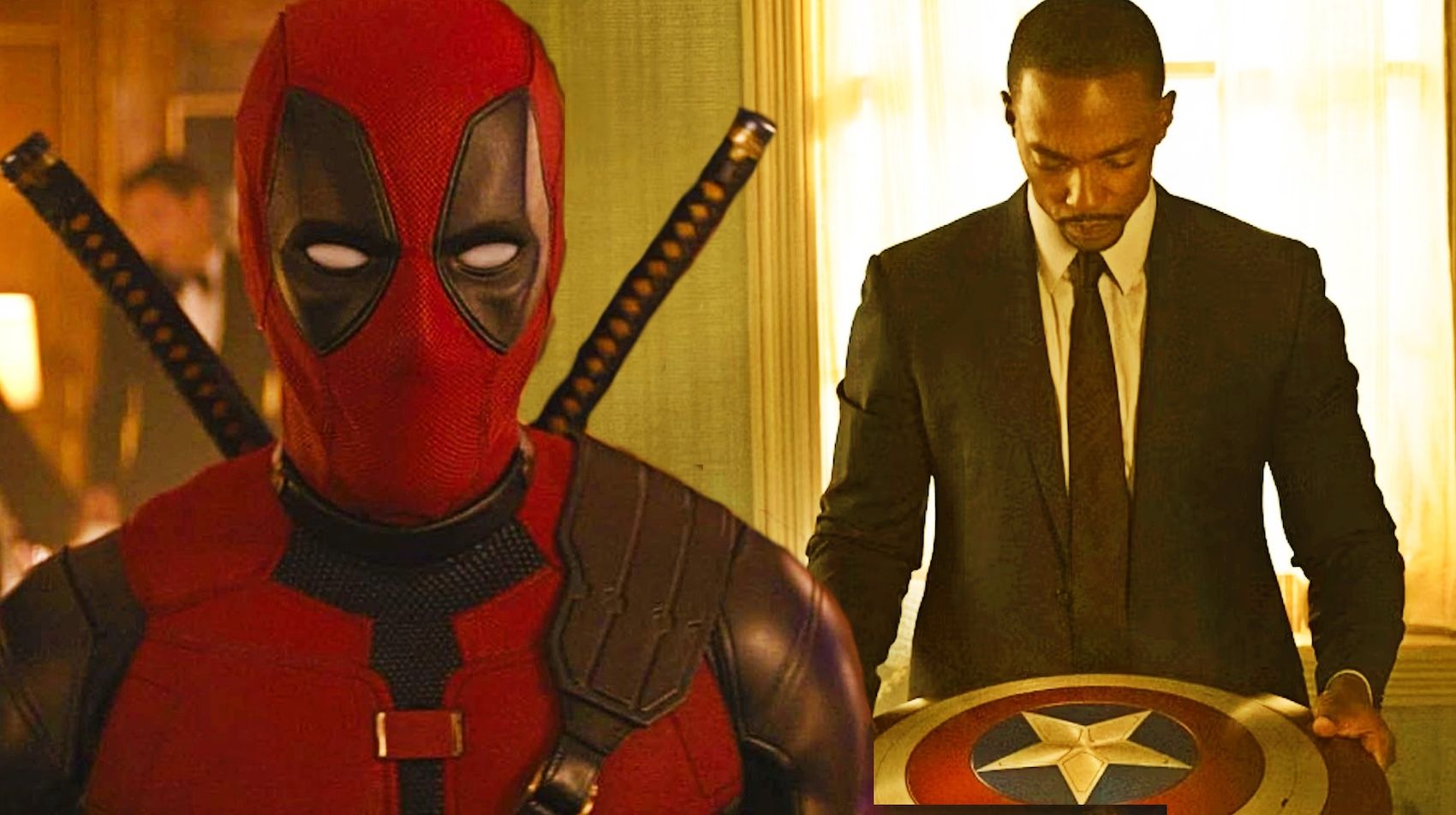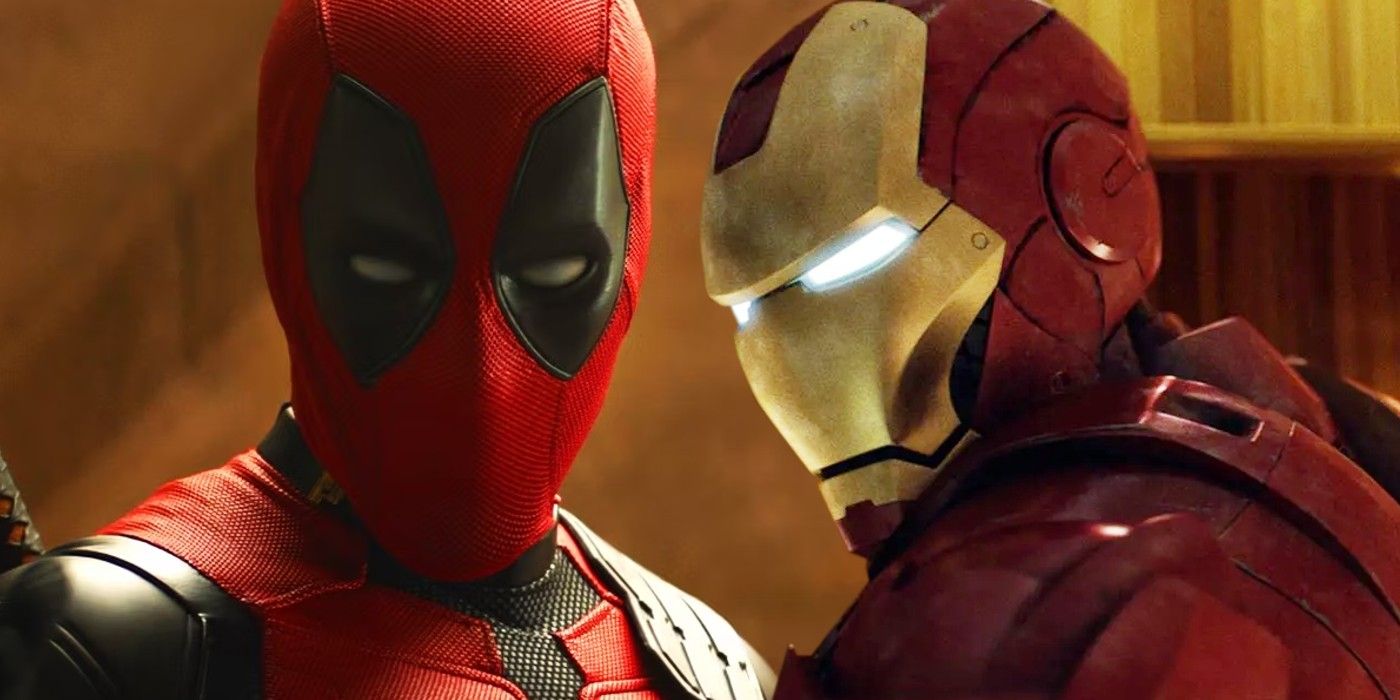Summary
- MCU's limited releases aim to restore early narrative cohesion and focus on quality over quantity.
- Slower release pace allows for each project to be an event again, reducing superhero fatigue.
- Risks of fewer releases include less room for new characters and a potential overcrowding of the streaming slate.
Big changes to the Marvel Cinematic Universe could help the struggling franchise return to its Phase 1-3 golden years. It's no secret that the MCU has struggled post-Avengers: Endgame to keep its momentum, and a string of critical and commercial disappointments has cast doubt on whether Marvel Studios still has what it takes to regain its status as the premier box-office juggernaut of the modern age. While only time can truly tell, Disney CEO Bob Iger has a new MCU plan he hopes can refocus the brand on quality over quantity.
Disney’s Q2 Earnings Results Webcast, in which Iger spoke about Disney's recent performance and future expectations, included the reveal that the MCU would be limited to 2, maybe 3 movies per year and a hard cap on only 2 TV shows. At first glance, a slowdown in the MCU timeline may seem problematic - after all, fans of a franchise understandably want content they can enjoy. However, fewer releases can help the Marvel Cinematic Universe as a whole return to the cohesive, driven narrative that brought the franchise its early success.

Disney's New MCU Release Plan Is Disappointing News For Marvel's Troubled Blade Movie
The MCU's Blade movie has already had a long and troubled production, and Disney's new release plan could be bad news for Mahershala Ali's Daywalker.
The MCU’s Slower Release Cadence Makes It Easier To Build A Cohesive Narrative
Though the first years of the MCU featured individual solo movies focused on Iron Man, Captain America, and Thor, a clear interconnectedness still blossomed as the franchise grew and went through a series of team-up Avengers movies. While the Infinity Stones storyline clearly wasn't planned from day 1 (Thanos' The Avengers cameo seems to tease a more traditional Lady Death story), the creatives behind the MCU were clearly able to maintain connective tissue and work the overarching narrative toward the eventual focal point of Avengers: Infinity War and Avengers: Endgame.
It's not hard to imagine that part of keeping the early MCU so focused was the relatively humble number of projects coming out each year. The MCU Phase 1 never featured more than 2 movies per year, Phase 2 had the same cap, and only Phase 3 jumped that up to 3 films per year as the franchise closed out the Infinity Saga. As such, there was ample room in between projects for writers and Marvel Studios leadership to have a firm grasp on the MCU story, as rewrites and reshoots invariably change early plans.
The MCU is only releasing one movie in 2024, Deadpool & Wolverine. This is only the second time Marvel Studios has released 1 film in a year. The first was in 2010, which only featured Iron Man 2.
As such, it seems likely that part of the general disconnectedness of the post-Endgame MCU is due to so much content coming out each year. Compared to the two-movie average for the MCU's Infinity Saga, the Multiverse saga has seen a marked increase. Phase 4 saw a whopping four movies and five TV series released in 2021 alone, 2022 featured 3 films and 3 series, and 2023 contained 3 of each as well. With that many projects, it becomes incredibly difficult for writers to know what's happening elsewhere in the franchise as narrative changes and scheduling shifts alter original plans.
The result has been too many new characters, too little follow-up on existing ones, frustratingly long-lasting cliffhangers, and a multiverse with too many different interpretations.
The result has been too many new characters, too little follow-up on existing ones, frustratingly long-lasting cliffhangers, and a multiverse with too many different interpretations. With this lens, a slowdown makes sense. With fewer projects at the same steps of pre-production and production at the same time, the franchise as a whole can better react to the twists and developments in each project. Moreover, there won't be quite so many characters each year for audiences to keep track of.
Limited MCU Movies & TV Shows Will Make Each Project A Bigger Deal
Another benefit of slowing down the MCU release schedule that was also enjoyed by the franchise's earlier years is making each project feel like more of an event. With up to nine projects coming out per year at the MCU's peak, it's understandable that all but the most dedicated fans lost some enthusiasm. A proper marketing campaign takes months and includes post-release engagement support, but with movies or TV shows coming out every few weeks, there was simply too much MCU.

Disney's New MCU Release Plan Is Great For Fixing Superhero Fatigue But Forgets One Big Problem
Bob Iger shared his thoughts on how Disney can get the Marvel universe back on track, but there is one important detail he forgot to mention.
However, even at the max of three movies and two TV shows moving forward, the MCU will only see an average of about one release every two and a half months. If the brand can keep its TV shows as fun extras instead of critical viewing, one film every four to six months is incredibly doable for even casual fans. Each release can be an event again instead of one drop in a sea of content.
Fewer MCU Releases Does Come With Risks
While Disney's new MCU release plan seems like a smart move, there are certainly drawbacks. While not part of this announcement, Iger previously confirmed that part of the MCU's new direction would also be a re-focus on established franchises and sequels. This, combined with fewer releases, does seem to make it less likely that the MCU will take risks on less popular characters. Previously, these underdog movies have often become some of Marvel's biggest hits.
Moreover, the MCU's upcoming streaming slate seems awfully cramped with only two TV shows per year. Right now, Marvel Studios has five planned live-action shows - Agatha, Daredevil: Born Again, Ironheart, Wonder Man, and VisionQuest. If Agatha hits its 2024 release window and Born Again and Ironheart see a 2025 release, that still leaves 2026 full with Wonder Man and Vision Quest and no room in the calendar for any new shows. That's not to mention the array of planned animated content, which seems unlikely to count toward the two-series cap.
While the MCU once seemed infallible, the last few years have proven that the franchise needs rejuvenation. Marvel Studios has proven that it can still make great movies and TV series, but giving each project more time to become the best possible version of itself may yield more consistent results. With exciting projects like Deadpool & Wolverine and Captain America: Brave New World on the horizon and a pair of Avengers movies not far out, the MCU may be set for a return to its position as the pop-culture IP to beat.

Marvel Cinematic Universe
- Created by
- Kevin Feige
- First Film
- Iron Man
- Upcoming Films
- Deadpool & Wolverine , Captain America: Brave New World , Thunderbolts (2025) , Blade (2025) , The Fantastic Four (2025) , Avengers: The Kang Dynasty , Avengers: Secret Wars
- First TV Show
- Agents of S.H.I.E.L.D.
- Upcoming TV Shows
- Agatha: Coven of Chaos , Ironheart , Daredevil: Born Again , Wakanda , Your Friendly Neighborhood Spider-Man , Marvel Zombies , Wonder Man , Vision Quest
|
Upcoming MCU Movies |
Release Date |
|---|---|
|
July 26, 2024 |
|
|
February 14, 2025 |
|
|
May 5, 2025 |
|
|
July 25, 2025 |
|
|
November 7, 2025 |
|
|
May 1, 2026 |
|
|
May 7, 2027 |




